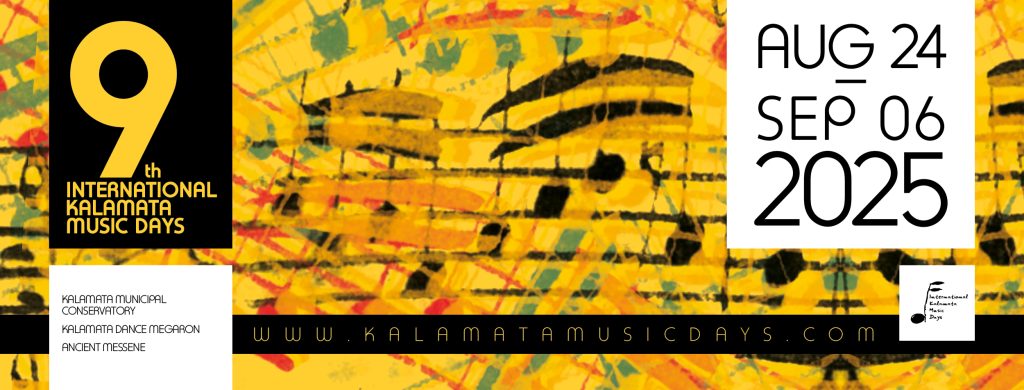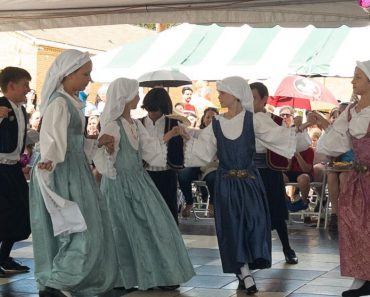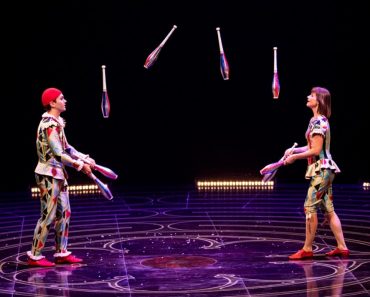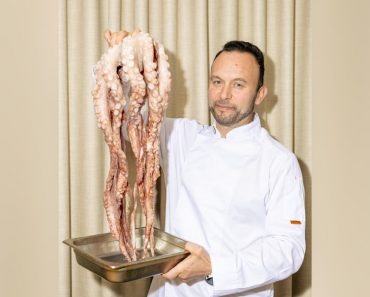On the occasion of their upcoming concert “One’s for sorrow, two’s for joy” on Tuesday, September 2, 2025, at 20:30, the female vocal trio TRËI will take to the Alternative Stage of the Kalamata Dance Megaron as part of the Kalamata Music Days. We spoke with TRËI — Gizem Şimşek, Mara Miribung, and Abélia Nordmann — about the power of the female voice, the thresholds of life and death, and music as both resistance and healing. The three artists present songs in thirteen languages, from the Black Sea to Iceland, exploring the fragile thresholds of life and death.

Through voices, cello, harmonium and psaltery, the ensemble brings to the fore the figures of wailing women, midwives, seers, and so-called witches: women who, across centuries, have sung of persecution and empowerment, giving voice to those moving between sorrow and joy.
Your program in Kalamata is titled “One’s for sorrow, two’s for joy”. How did the idea for this theme come about, and what will we hear on stage?
“One’s for sorrow, two’s for joy” is an homage to those who are present at the thresholds of life and death – in songs from the Black Sea to Iceland, sung in thirteen different languages. Our coming into this world and leaving it may be the most fragile and profound moments, and we wanted to communicate the necessity of accepting the emotions that come with it, with being human: the sorrow, the joy and all that accompanies us throughout our experiences. Especially today, in a world that is the furthest from compassion it has perhaps ever been.
In your artistic work, traditional sounds, vocal landscapes, original compositions, and theatricality coexist. What is the thread that connects them?
What we sing and bring on stage is for us a way of expressing our humanity, of being and feeling alive in dark hours and light moments, also a reminder of our interconnectedness. In all the songs we share, arrange and write, wherever they may come from, we find the same questions, loves, fears.
The songs you choose speak of women: midwives, seers, “witches”, singers standing at the thresholds of life and death. How do you perceive the female voice within this symbolic framework? And is there a need to reframe the position of women today?
The female voice we talk about in our concerts reminds us that those carers have historically (and in different cultures) been mostly persons that identify as female – non-dividing, focusing on the collective, on community systems, caring for others. We want to enhance this voice and honor it. While the feminine has always carried an archaic role in this regard – for example the three fates in Greek mythology -, we, as women, preserve spirituality that is tethered in nature. These days we are slipping away from it more and more as humanity slips away from nature itself. We are still far away from a just society regarding many aspects – gender and non-gender understanding being only one example. Jobs that are mainly associated with women such as midwives, nurses, care takers, death doulas etc. are still underpaid, the value of „care“ is still not seen.
You come from different cultural and musical backgrounds (Turkey-Scotland, Italy, France-Germany). How do these elements enrich your musical identity and your collaboration as TRËI?
Our backgrounds enrich us and allow us to bring together a variety of colors, vocal techniques and approaches to songwriting and to composition – and to different aspects of life. Throughout those differences, our fascination for languages and songs from afar always strengthens the musical bond that keeps us together. And although our voices are also very different, they create their own space of resonance.
Your work raises strong social, ecological, and political questions. Do you consider music an act of resistance—or of healing?
Definitely. Both. Sharing joy, grief, healing and singing in our current climate is, for us, an act (and an art) of resistance.
In the age of globalization, how does vocal tradition—and especially through a contemporary, female ensemble—find its place in an international festival like Kalamata Music Days?
Our music seems to be a genre that often doesn’t fit a certain box: we combine vocal folk along with vocal and instrumental improvisation, classical, baroque and overtone singing. In this, the human voice stays our main tool – and this is what seems to reach the people most directly.
Since your music often incorporates scenic and theatrical elements: does one need to experience you live to fully understand TRËI?
Yes. On stage, we’re mostly unamplified – this is an experience that is much more direct than from a CD, even if our album does carry our core to a certain extent. In the program “One’s for sorrow, two’s for joy”, in between our songs, many different women of all ages are on stage with us through recordings of voices and stories.
Which women—historical or contemporary—serve as inspiration for you and “converse” with your music?
Female ancestors, grandmothers, mothers, sisters, those who came before us – and here a wild selection from our never ending list: Ella Fitzgerald, Joanna Macy, Michela Murgia, Elif Şafak, Audre Lorde, Şebnem Ferah, Bell Hooks, Hildegard von Bingen, Fairuz, Şevval Sam, Rose Ausländer, Fiona Apple, Mascha Kaléko, Googoosh, Gianna Nannini, Nina Simone, Astrid Lindgren, Sarojini Naidu, Kate Bush, Sezen Aksu, Selda Bağcan, Elizabeth Fraser, Tori Amos, Björk, Francesca Albanese.
Practical Info
Tuesday, 02.09.2025 | 20:30
Kalamata Dance Megaron (Alternative Stage) – Admission: €10, €5
TRËI: ONE’S FOR SORROW, TWO’S FOR JOY
Wailing women, midwives, seers, witches: songs about persecution and empowerment honouring all the women who, for centuries, have been singing for those crossing the thresholds of life.
Gizem Şimşek, Mara Miribung, Abélia Nordmann: concept, compositions, arrangements, vocals, cello, harmonium, psaltery.
For tickets please go here.







